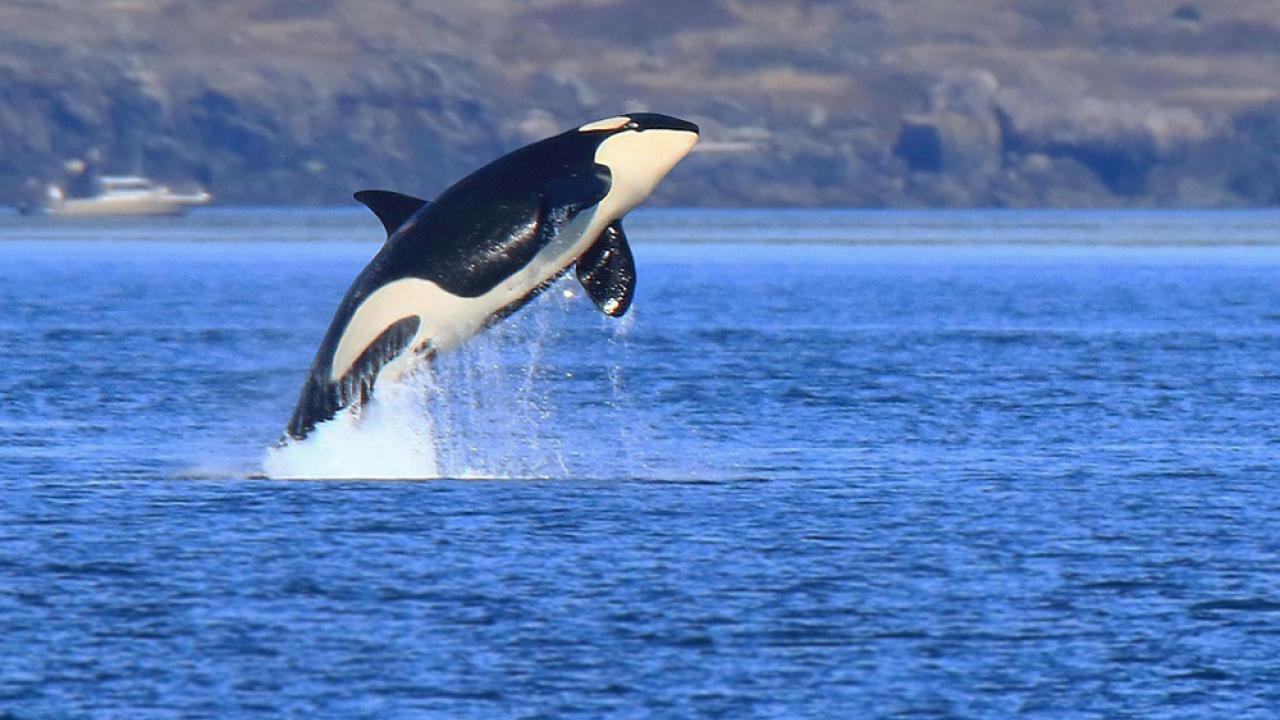Marine mammal health is changing across the globe due to human activities and climate change. Increasing numbers of animals are dying from trauma, environmental pollution, disease and lack of food. Some populations have recovered while others face extinction.
Scientists and veterinarians from the University of California, Davis, and Woods Hole Oceanographic Institution will hold a press briefing about new and ongoing efforts to protect marine mammal health, including that of endangered southern resident killer whales, North Atlantic right whales, and the vaquita.
The press briefing will be held Sunday, Feb. 16 at 12 p.m. PT at the annual meeting of American Association for the Advancement of Science in Seattle, Wash. The briefing is based on the speakers’ scientific session, “Marine Mammal Health Assessments: Informing Scientists, Policy and the Public,” held later that afternoon at 3:30 p.m.
The speakers include:
- Joseph K. Gaydos, director of the SeaDoc Society, a program of the UC Davis School of Veterinary Medicine. He will describe how, while scientists have learned a lot about endangered southern resident killer whales since their listing as an endangered species 15 years ago, their population continues to decline. Resident animals of the Salish Sea, only 73 of these whales remain. Gaydos will describe recovery efforts, including attempts to increase chinook salmon and reduce underwater vessel noise. He will also discuss the potential for veterinary intervention and discuss disease findings from a recent review of causes of death in stranded killer whales.
- Frances M.D. Gulland, a research associate at the UC Davis School of Veterinary Medicine’s Karen C. Drayer Wildlife Health Center and a commissioner on the U.S. Marine Mammal Commission. Gulland will describe efforts of the Global Stranding Network and give examples of how individual marine mammal health assessments can be used in policy.
- Michael Moore, senior scientist at the Woods Hole Oceanographic Institution and director of the WHOI Marine Mammal Center. He will discuss strategies to avoid the pending loss of the North Atlantic right whale species, which have been impacted by entanglement in fishing gear, climate change and other threats
Media Resources
Kat Kerlin, UC Davis News and Media Relations, 530-750-9195, kekerlin@ucdavis.edu
Justin Cox, UC Davis School of Veterinary Medicine/SeaDoc Society, 530-219-5227, jcox@ucdavis.edu
